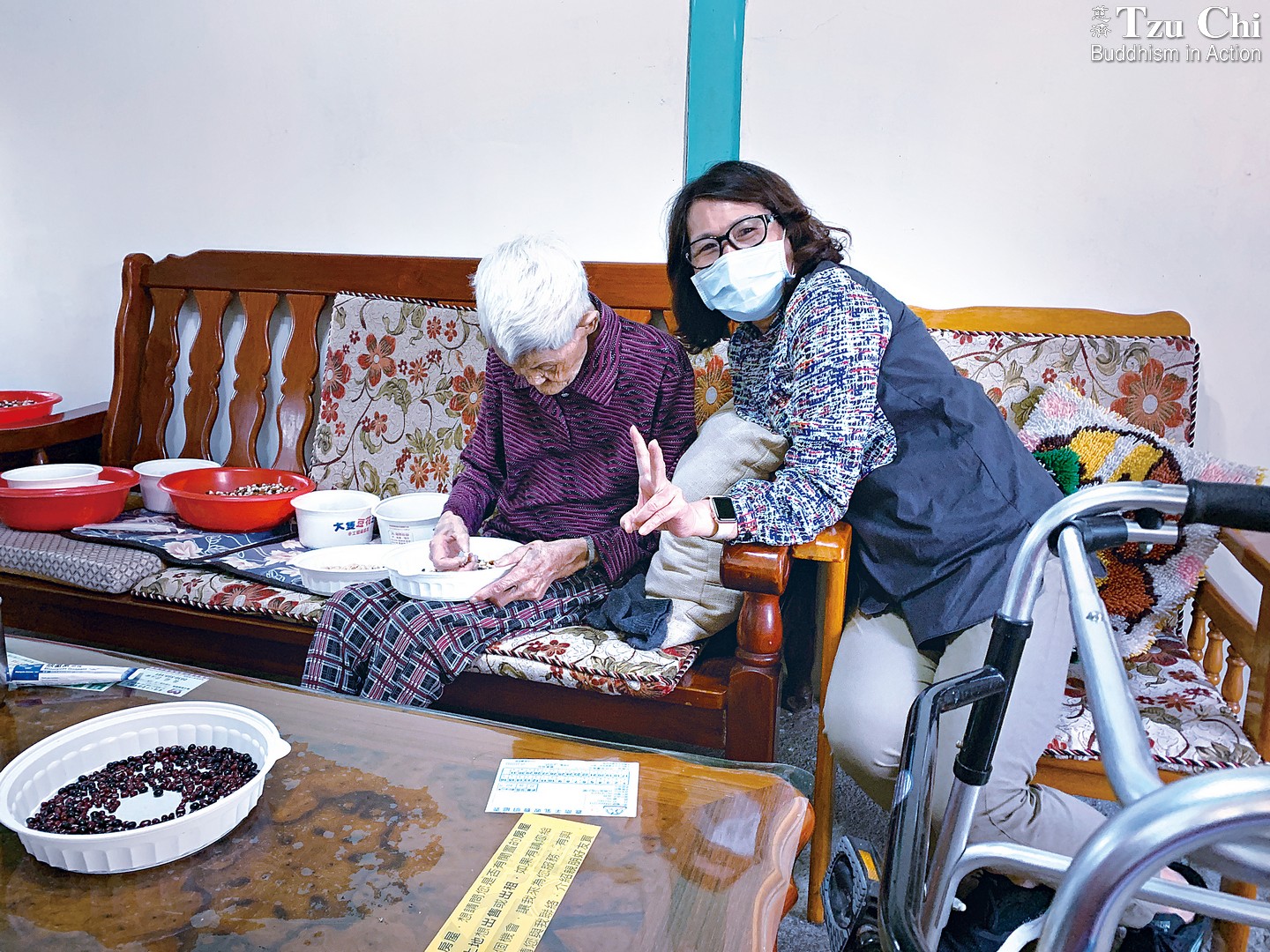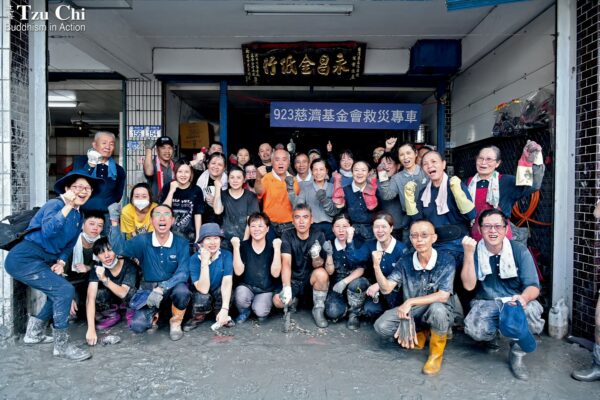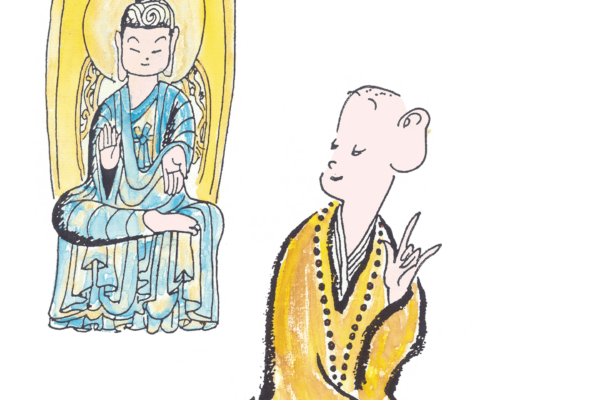By He Shu-li
Translated by Wu Hsiao-ting
Photo by Wang Qiu-lian
Providing a loving, supportive environment—and a supply of mixed beans—for her mother during her cognitive decline is this caring daughter’s heartfelt expression of filial piety.
Following fellow Tzu Chi volunteers Huang Yu-ying (黃裕櫻) and Lin Yao-qi (林耀錡), I entered the living room of a traditional courtyard house in Shuishang Township, Chiayi County, southern Taiwan. The room was clean and simply furnished. Containers of various sizes filled with an assortment of beans occupied the tables and chairs. Yu-ying’s 93-year-old mother, Mrs. Huang, was sitting in front of one of the containers, sorting through its contents: ten different types of beans.
“My mother began to experience memory loss three years ago, after my father passed away,” Yu-ying quietly confided in me. “She’d hide the pocket money we gave her in a place only she knew, but then forget where she had put it.” Yu-ying added that when her mother couldn’t find the money she had stashed away, she would think someone had stolen it and run out in a restless state to look for the thief, causing great worry for her family members who had to search for her everywhere.
“She even accused her foreign caregiver of stealing her money, which left the caregiver feeling unfairly treated. The caregiver even considered changing employers because of the baseless accusations.” Yu-ying was surprised and troubled by her mother’s cognitive decline. “She had been working in the fields since she was seven and was still able to grow vegetables at the age of 90,” Yu-ying continued. “It was truly heart-wrenching for us to see such a significant deterioration in her cognitive abilities.”
When Yu-ying shared her mother’s challenges with friends and family, someone suggested having her mother sort beans as a way to calm her mind. They said it might even help combat or prevent further decline. She decided to give it a try.
Focus brings wisdom
Yu-ying purchased more than ten types of beans, including speckled beans, soybeans, red beans, black eye beans, black beans, broad peas, peas, lentils, and chickpeas. She explained to her mother that these were beans winnowed out by farmers. She asked her mother to help sort and separate the beans to be cooked and shared with everyone later. Mrs. Huang, who had always been thrifty, began sorting the beans by putting the speckled beans in the speckled bean container, soybeans in the soybean container, and so on. Slowly but surely, she became less restless and more peaceful.
Mrs. Huang could remain seated indoors for long periods of time, so Yu-ying would regularly take her out for walks and to interact with neighbors. Over time, she noticed that her mother became more sociable. Even though the elderly woman’s hearing was impaired, if she saw someone coming to visit her at home, she would even invite them to sit and chat. She would then lower her head and continue to sort her beans, looking very content. If someone would ask, “Ma’am, why are you picking at the beans?” Mrs. Huang would answer without any sign of hearing impairment, “I can fry or make soup with them.”
After a while, Mrs. Huang’s symptoms of dementia stabilized, and she even became better at sorting beans. She would start with the larger beans and save mung beans, the smallest type, for last. She looked for ways to make her work more efficient. Yu-ying came to realize the transformative power of focus through this experience, witnessing how it led to a sense of inner peace and wisdom.

Huang Yu-ying (right) spends time with her mother while her mother sorts various types of beans.
Filial piety is a duty
Yu-ying firmly believes that filial piety is a fundamental duty, and appreciates her husband Lin Yao-qi’s dedication to taking care of her mother. As the oldest and only son, Yao-qi had years of experience caring for his ill parents, which made him particularly attentive to the needs of older people. When driving a truck to recycling points in local neighborhoods and villages to collect recyclables for Tzu Chi, he keeps an eye out for elderly people who may be lost or in need of assistance. (Chiayi County has a large population of older people.) If he notices someone who seems confused, unresponsive to greetings, with dry lips, or exhibiting other worrying signs, he suspects that they may be lost and immediately asks his fellow volunteer in the truck to get out of the vehicle to keep an eye on the elderly person and prevent them from wandering away. He then quickly drives to the nearest police station to report the situation and leads the police back to the person. He has helped several elderly people who were lost or on the verge of shock in this way.
As Tzu Chi volunteers, Huang Yu-ying and Lin Yao-qi apply Dharma Master Cheng Yen’s teachings of “never delay in practicing filial piety and doing good” in their daily lives. Living this out, they often keep Mrs. Huang company or engage her in conversation. They realize that their presence brings her comfort, and take pleasure in watching her nimble fingers work as she sorts the beans. Yu-ying cherishes these moments with her mother. It brings to her mind the lyrics from a well-known Chinese song: “a child with a mother is most blessed.”
Yu-ying emphasizes the importance of ensuring her mother’s emotional stability, which also has a direct impact on her caregiver’s ability to provide quality care. She is deeply grateful to the caregiver for taking good care of her mother, especially when she and her husband are too busy to be with her. She is also happy she can help her mother have a peaceful old age. Like many others, she believes that providing our parents with a supportive environment is a meaningful way to express our gratitude for all that they have done for us.



